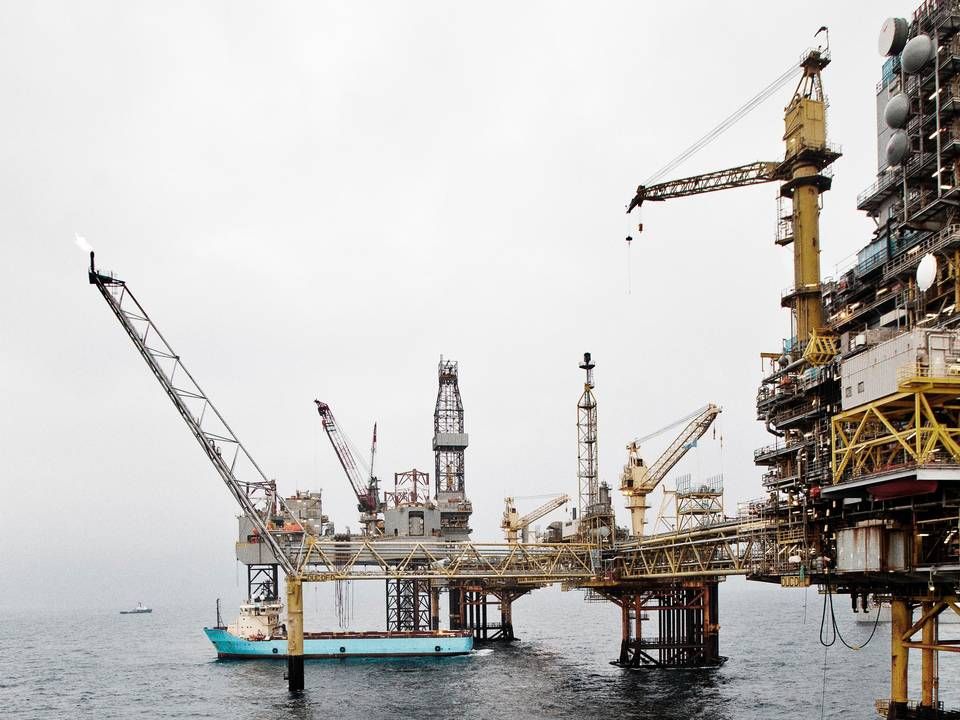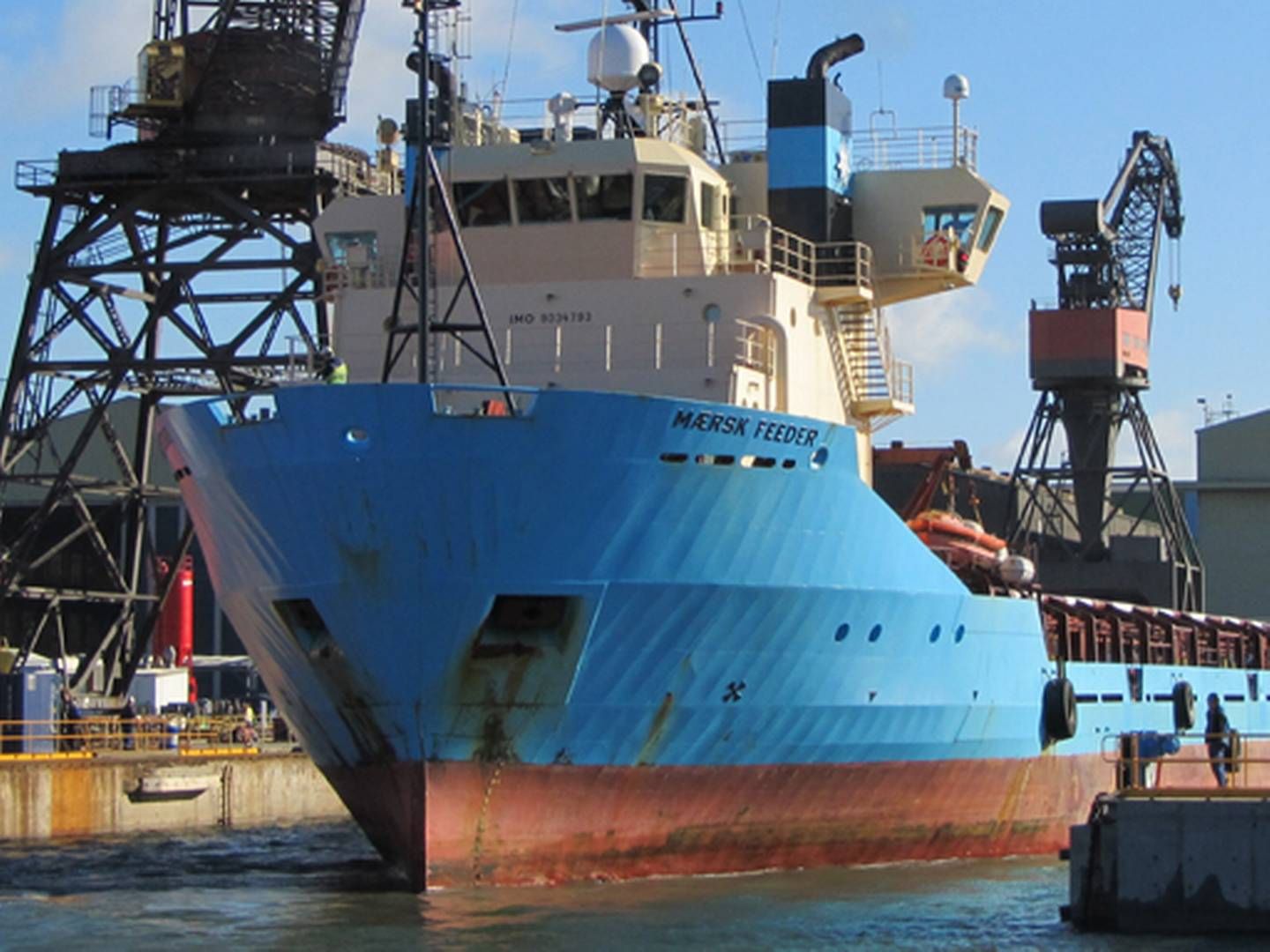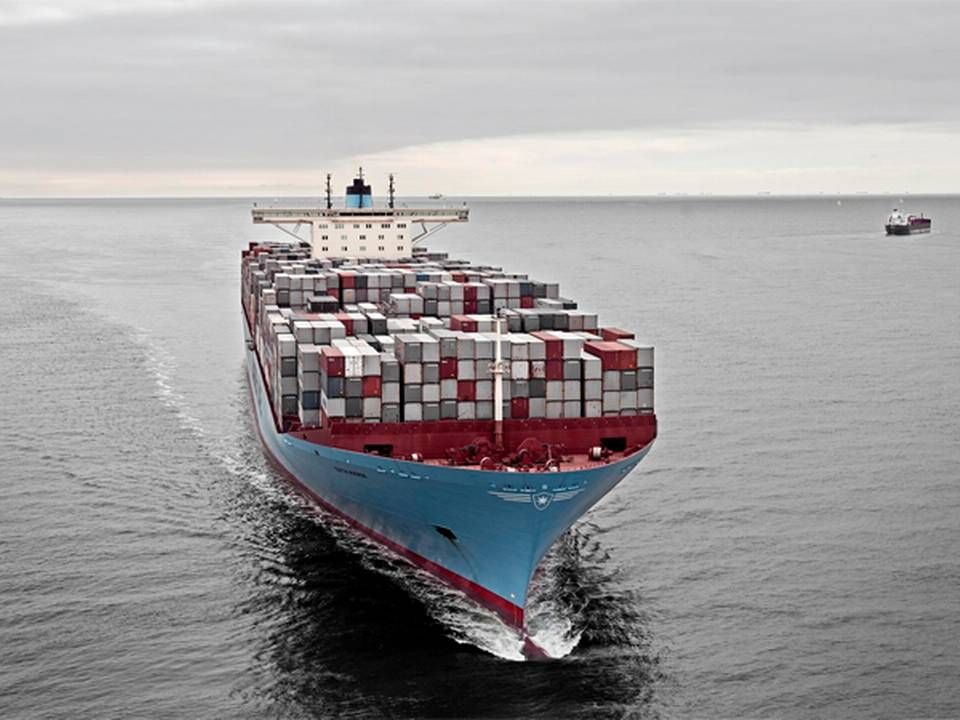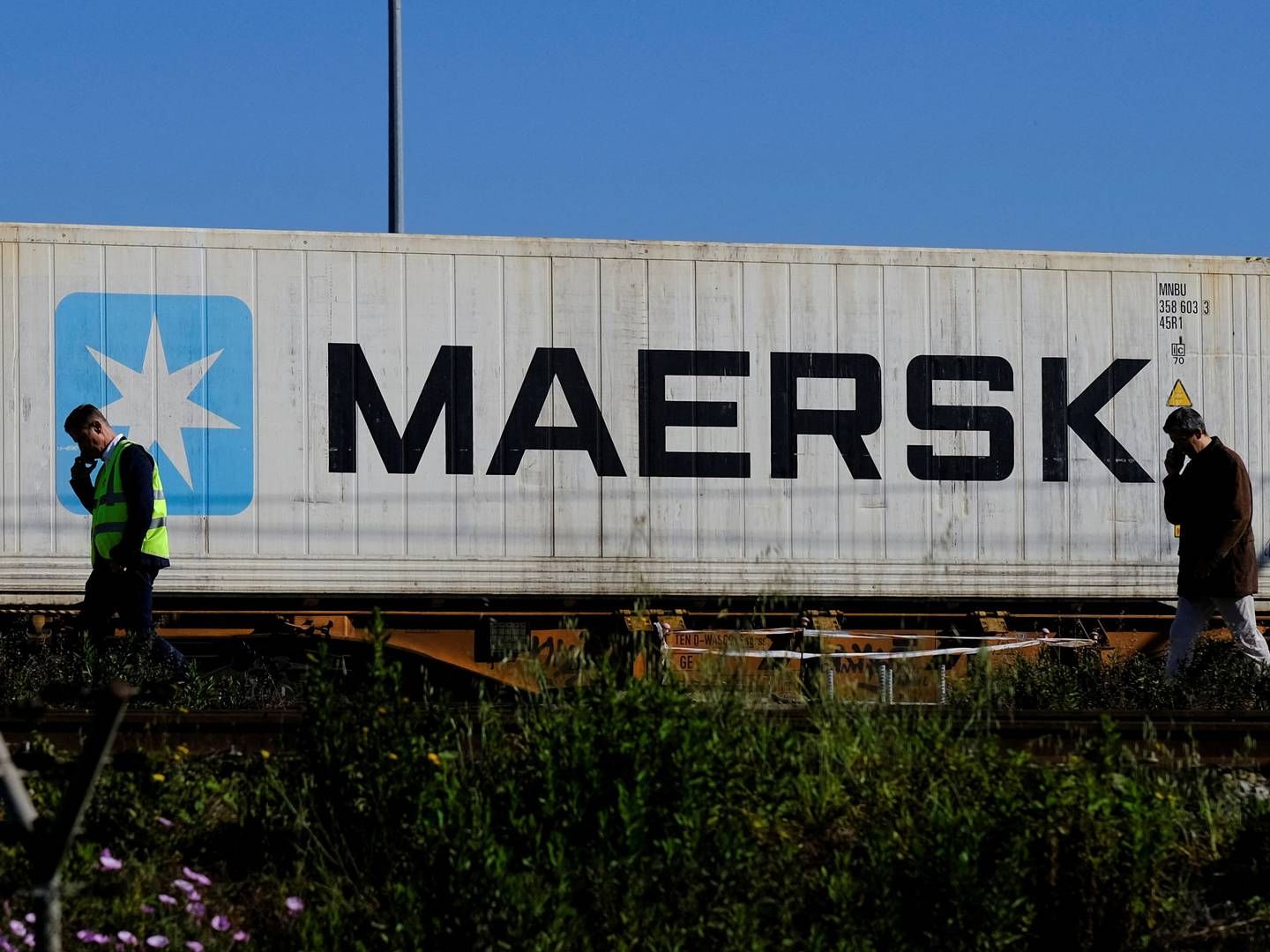This is how Maersk Supply Service will make money in the future
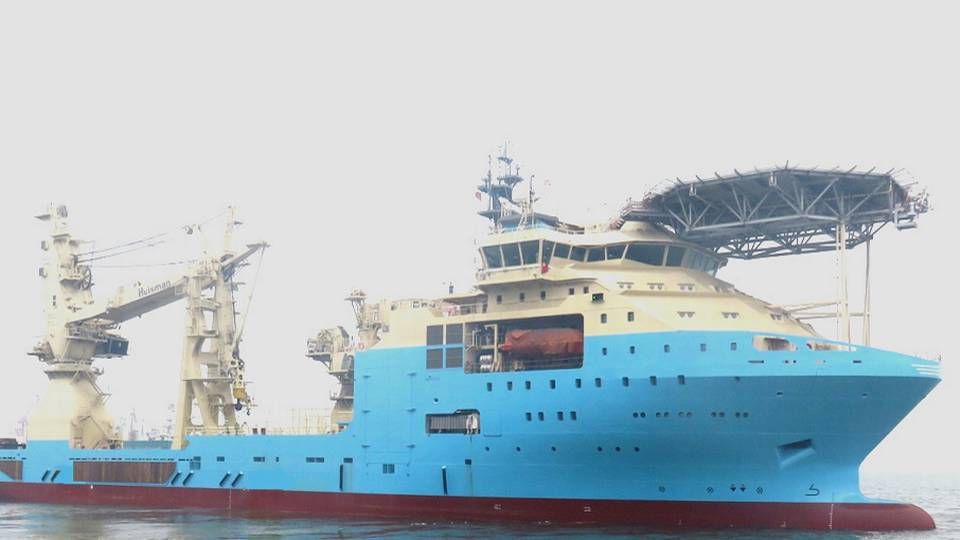
2015 was challenging. And the same applies to 2016 and 2017, but no year will be as tough for the oil and gas sector as 2018, expects Maersk Supply Service.
The company is, like many other shipping companies servicing offshore, in the midst of a large-scale strategic change in a sector where many players are now looking toward ocean wind and mineral extraction.
But even if the new initiatives are not successful, the once profitable income source from the oil and gas sector will need to improve significantly before Maersk Supply Service, which Maersk has been working to spin off from the core group since 2016, can get back to the earning levels seen in 2014 – before the oil price plunged, says Chief Strategy Officer Jonas Agerskov in an interview with ShippingWatch.
He points to four business areas that will contribute significantly to the company's earnings in the years to come.
"In 2020 one third of our revenue will come from new business areas and activities beyond oil and gas," Agerskov tells ShippingWatch:
"Oil and gas represent an important part of our business, but we must never end up in the same situation again, where we're 100 percent exposed to oil and gas, as we were in 2015 to 2017."
(Article continues under after photo)

The chief strategy officer declines to specify what the top line is expected to look like in 2020. For this year, one fourth of revenue is expected to come from new business areas.
But despite the company's many new initiatives, there is still a need for a significant improvement of activities in the oil and gas market before once again reaching a revenue of USD 778 million, as was the case in 2014, says Agerskov.
"The precondition for getting revenue back to the level seen in 2014 is that we're successful with many of the initiatives we're working on. But also that the oil and gas sector gets up and running again. The new initiatives can't stand on their own," says Agerskov.
At that time, the company's profit came to USD 201 million.
Joint venture with Drilling will contribute "significantly"
The ambition to broaden the business is part of a strategy Maersk Supply Service has been working on since late 2016, and which is a result of factors including management's expectation that global demand for oil will soon peak.
"We believe that the demand peak will happen sometime in the mid-2020s. The oil and gas market will still be a big market, it just won't be the same in the future," says Agerskov.
The chief strategy officer splits the 33 percent of the revenue, which Maersk Supply Service will bring in from elsewhere in 2020, into four areas.
These include joint venture Maersk Decom, formed with Maersk Drilling to perform decommissioning of end-of-life rigs in oil fields.
The new company has previously told ShippingWatch that there will be jobs totaling USD 50 billion over the next eight years in the North Sea alone, and that it expects to control one tenth of this market in the years to come.
Maersk's new offshore venture will take 10 percent of billion dollar market
Then there is ocean wind, including a cooperation with Vestas. The project, which covers installation of wind turbines with OSV vessels, is still at a test stage. But Maersk Supply Service expects to have a final solution ready to go to market by late 2020.
Lastly, deepwater extraction of raw materials, so-called deep sea mining, and work to clean up the world seas, removing elements such as plastic, will feature among the areas the company bets on going forward.
"Decommissioning will contribute significantly to our revenue. For ocean wind, this year we completed our first walk to work contracts (service and operating jobs, -ed.), and we've launched our innovation partnership with Vestas. There's a lot of value in that sector," says Agerskov:
"Then there's deep sea mining and ocean clean up, which are two long-term bets on industries that will hopefully materialize in the next two to five years."
(Article continues after the graph)
Developments in the oil and gas market have made more players seek out new sources of income.
This is the case in the Norwegian sector, where several players are also looking toward ocean wind and deepsea mineral extraction. Denmark's Esvagt will also try to get more of its revenue from ocean wind in the coming years. Early this year, the shipping company secured financing to acquire new offshore wind service vessels.
While oil and gas remains challenging to the shipowners. A higher oil price, currently hovering at the highest level since the end of 2014, and large profits from the oil companies have yet to result in a profitable improvement for many offshore shipping companies.
Numerous offshore shipping players beyond Maersk Supply Service have reported deficits this year so far. Norwegian media Sysla recently reported that just one of the five biggest offshore shipping companies listed in Norway reported a profit for the second quarter of the year.
This review covered, among other companies, fairly recently merged Solstad Farstad, which in the last quarter alone booked a deficit of NOK 779 million (USD 95.7 million), and Solstad Farstad CEO Lars Peder Solstad recently noted that the company is preparing for more years without a sustainable market.
Solstad Farstad expects low rates towards 2020
"We are prepared to wait a few years before we see a sustainable increase in prices. Our agenda is to build a good company. We must continue to manage high debt and a tight liquidity," said Lars Peder Solstad according to Dagens Næringsliv.
For Maersk Supply Service, revenue dropped USD 4 million in the second quarter, to USD 70 million, showed the Maersk Group second quarter interim report, published in August.
The company's operating result (EBITDA) for the period was negative at USD 3 million.
"We have always expected that 2018 will be the toughest year for the oil and gas sector, where we don't see any developments toward a return to the goods days of the past. 2019 will still be characterized by a tough market, but we expect some improvement," says Agerskov:
"The last year to year and a half have seen some development toward more activity. As long as the oil price fluctuates at these levels, we also believe that activity will return. There have been insufficient investments in replacing oil reserves, so they'll need to invest in new explorations at some point."
Has scrapped ships – but also received newbuilds
The slowdown in the sector has made many ships unemployed in the global offshore fleet. In its interim report, Maersk specifically estimated that around 30 percent of the global fleet was idled by the end of the second quarter.
This development has made several shipowners sell or scrap vessels. Maersk Supply Service, which had 11 ships idled in the second quarter, has also disposed of ships.
The company has also taken delivery of new ships as part of fleet newbuild program launched back in 2014.
Maersk Supply Service has nine new vessels on the way this year
"In the last three or four years, we've divested more than 25 ships, which is a considerable part of the fleet. There's still a lot of overcapacity, and it could help the situation if some of the stacked and older tonnage leaves the market."
But you've also taken delivery of several ships. Do you need to get rid of more ships?
"We believe we've completed the program we've set out, and taken our share of the responsibility for divesting the older part of our fleet," says Agerskov, adding that the shipping company has taken delivery of a total 12 ships since 2016.
New solution has yet to emerge
Maersk Supply Service is one of the four companies A.P. Moeller-Maersk two years ago announced it would spin off from the group as part of the large-scale transformation to become a focused transport and logistics company without oil activities.
While Maersk Oil and Maersk Tankers have been sold, and Maersk Drilling is expected to be listed separately during next year, the group has yet to find a solution for Maersk Supply Service, for which it had originally hoped to find a solution before the end of 2018.
Maersk will spin Drilling off and list it separately
"The pursuit of a solution for Maersk Supply Service is continuing, however the timing for defining a solution is difficult to predict due to the challenging markets," wrote Maersk in its interim report.
English Edit: Daniel Logan Berg-Munch
Maersk Supply: Every third offshore vessel in the world is unemployed
Related articles
Maersk Supply Service partners with Vestas
For subscribers
Maersk will spin Drilling off and list it separately
For subscribers

